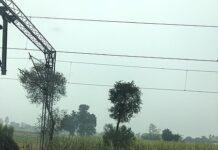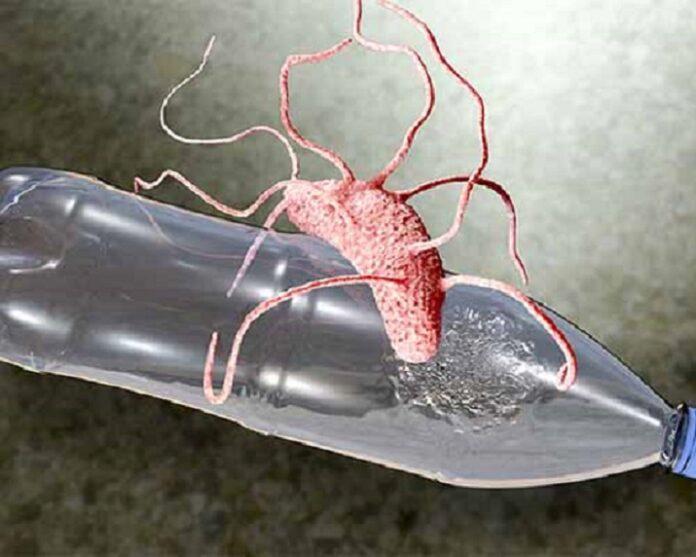Petroleum based plastics are non-degradable and get accumulated in the environment hence are a huge environmental concern worldwide including in India especially in view of the fact that India plastic recycling industry is yet to take a root. The government has recently banned single use plastic. These reports of discovery of bacterial strains capable of degrading non-degradable plastics holds huge promises and hopes.
Researchers from a university in Delhi NCR have identified a bacterial strain in the local wetland in Greater Noida near Delhi that can degrade plastic [1].
It is relevant to mention here that another plastic eating bacterium Ideonella sakaiensis 201-F6, was recently discovered. This bacterium can grow on Poly ethylene terephthalate (PET) as a major carbon and energy source and uses its PET-digesting enzyme to degrade the plastic [2].
Petroleum based plastics are non-degradable and get accumulated in the environment hence are a huge environmental concern worldwide including in India especially in view of the fact that India plastic recycling industry is yet to take a root. The government has recently banned single use plastic. These reports of discovery of bacterial strains capable of degrading non-degradable plastics holds huge promises and hopes.
However, can these discoveries be a way forward to fight plastic pollution?
The lab results need to be proven with respect of scaling up the technology so that it could see light of the day to be implemented in a practical sense. This verification and validation may take at least 3-5 years to be industry ready. Further, once the bacteria eat the plastic, the by-product generated must be non-toxic to human and animal health and to the environment. This needs to be verified and analyzed going forward. Also, one needs to plan and ensure that the disposal of these by products is performed in an environmentally friendly manner. This would require capital intensive industrial scale disposal systems.
When this happens at an industrial scale, this would help reduce the non-degradable plastic burden on the earth.
‘’While it is very important to find a way out of plastic pollution to degrade the ever-increasing plastic burden on environment, it is imperative to stop or cut down usage of non-degradable plastics and switch over to biodegradable plastics especially those bioplastics that are easily compostable’’ said Cambridge educated biotechnologist, Dr Rajeev Soni. Use of natural biological processes is the most sustainable and environmentally friendly way for both the production and disposal of plastics.
Dr Jasmita Gill, a scientist trained at International Centre of Genetic Engineering and Biotechnology and associated with BIOeur emphasizes efficient utilization of biological resources. We are working towards using biomass such as plants, fruits and vegetables, food wastes etc. as raw material to convert them biodegradable plastics which could be used in the production of drinking water bottles, cutleries, trays, cups, plates, carry bag, etc. for domestic purposes. BIOeur, she said is launching these environment friendly products shortly.
***
References
1. Chauhan D, et al 2018. Biofilm formation by Exiguobacterium sp. DR11 and DR14 alter polystyrene surface properties and initiate biodegradation. The Royal Society of Chemistry RSC Advances Issue 66, 2018, Issue in Progress DOI: https://doi.org/10.1039/c8ra06448b
2. Harry P et al. 2018. Characterization and engineering of a plastic-degrading aromatic polyesterase. Proceedings of the National Academy of Sciences. DOI: https://doi.org/10.1073/pnas.1718804115
***
























